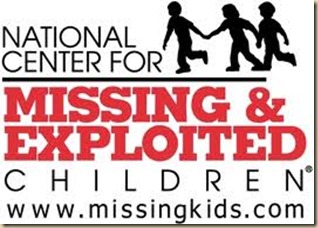Earlier this week, Billy came home from work, hopped on the computer (nothing unusual about that), and then made an unusual phone call. After doing a bit of research, he was convinced that one of his customers from earlier that evening had been in charge of two children currently listed as missing, so he called the number listed on the Amber Alert to report his concerns.
The kids he’d waited on have been missing from their home in Tennessee since September, and it seems there’s been very little activity toward their location since. I was proud of him for being concerned enough with something that didn’t seem quite right to try and help, and I was hoping that his actions actually might help. I’m not entirely sure what I thought would happen after his report; after all, he didn’t really have a ton of identifying information to track the kids at the moment and could only say where they’d likely been an hour or two earlier. Still, in the movies, that single phone call would’ve been the impetus to get the diligent law enforcement officers looking again. They would’ve put pieces together to understand why the kids would’ve been several states away, used Billy’s simple description of the adult to identify the kidnapper, and wrapped the case up neatly within a few days. But, as near as I can determine, his sighting report probably just went into a database somewhere, filed away with whatever other tidbits of information have rolled into the tip line in the past three months. A Google search does not reveal any new activity in the case, not even a blip. If that’s disappointing for me, I can’t imagine how family and friends must feel, with seemingly nothing being done to bring the kids home.
But the incident got to me to thinking about missing kids in general, so I browsed around the site of the National Center for Missing & Exploited Children (NCMEC), and I have to say, it’s a fairly depressing place. Their statistics indicate 800,000 children under 18 are reported missing every year. That’s a staggering number. In my home state, there are currently 46 people listed as missing—some recent runaways, some likely abductions, and some who have been missing for decades. As awful as losing a child would be, I have to think that a parent spending an entire life not knowing if their kids were alive or dead would be even worse. Whether they were taken or left on their own, how do you learn to cope with such a thing? At what point does keeping hope alive begin to be more of a curse than a blessing? I certainly don’t know, and pray to God I never have reason to learn.
So what’s the point of all this rambling? None, really, it’s just what was on my mind tonight. I wish there was something that I could do to help—something that we all could do. On a practical note, we can stay in tune with any Amber Alerts going on in our area, just in case we find that we have information to offer. There used to be a way to sign up to have them delivered to your cell phone via text, but that program changed recently (if you were signed up, you should’ve received a notification of changes) and is now more device dependent. Rather than signing up for text messages, Amber Alerts are now being delivered automatically through a program called Wireless Emergency Alerts, to devices that support the feature. If you’re not certain if your device is capable, you can check with your wireless carrier to find out for sure. (I can tell you that iPhones support the alerts, as long as you’re using iOS6; once I updated, mine were available.) If your device is not compatible with the alerts, you can find some other ways of staying updated here.
Other than that, I guess all any of us can really do is what Billy did: notice when things don’t feel right and then tell someone about it. Even if it doesn’t seem to help, there are things that have to go down on the side of “better safe than sorry”. My thought has always been, “if it feels wrong, it probably is”, so pay attention to your instincts, and don’t be afraid to speak up. A child could be depending on you.
